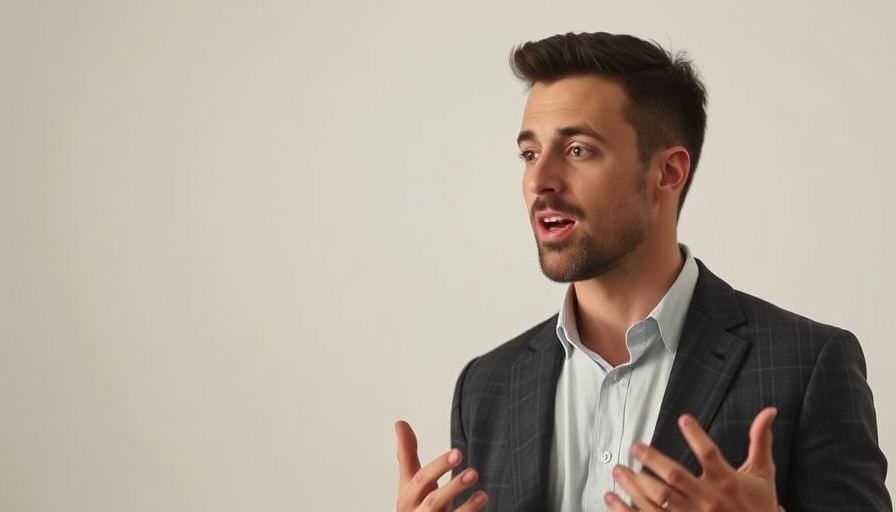
Fyre Festival: A Cautionary Tale of Risk and Reboot
The much-touted Fyre Festival 2 has officially been postponed, raising eyebrows across the nation about the attention-grabbing yet disastrous venture initiated by none other than Billy McFarland. Initially slated to occur in Mexico at the end of May, this event promises a stark reminder of the 2017 version, which left guests hungry and stranded, famously dining on mayonnaise sandwiches in the Bahamas.
In 'Fyre Festival 2... is postponed,' the discussion dives into the risks associated with investing in events like Fyre Festival 2, prompting us to deeply analyze its implications.
From Bahamian Meltdown to Mexican Mayhem
Back in 2017, the first Fyre Festival launched with extravagant promises but ultimately turned into a public relations nightmare, resulting in a wave of stranded "Nepo babies"—a term affectionately used to describe young, affluent influencers. The aftermath saw McFarland facing legal consequences, sentenced to six years for his fraudulent activities. Now, in an attempt at redemption, he has resurfaced with the slogan “Fyre Festival 2 is real.” However, skepticism reigns, especially given his track record. With 2,000 hopefuls eager to embrace the adventure, one must ask: is this pursuit of experience worth the risk?
Underlying Economical Implications
This ongoing saga raises pertinent questions about value in the economic landscape. In a time where citizens face rising inflation, spending $1,500 for a ticket to an uncertain festival feels risky, echoing broader concerns about discretionary spending amid economic fluctuation. Such ventures invite scrutiny on consumer behavior; are individuals truly ready to risk their hard-earned money for an event marred by its questionable reputation?
The Relevance of Hope and Trust in Free Markets
McFarland’s plight may symbolize more than a mere failure of a festival; it illustrates the fragile nature of trust in entrepreneurial ventures. This case asks us to consider: how far does hope take us in the pursuit of experiences we desire? For many, including those who might feel compelled to spend in light of our challenging economic climate, investing in such a venture becomes a gamble bought on the belief that one day, the promise of a “true” Fyre Festival might exist. The discourse around democracy and freedom reflects in how Americans can choose to engage with business risks—both shared and individual.
A Reflective Look at Consumer Culture
As we dissect the potential pitfalls of consumerism, it becomes clear that being a part of Fyre Festival 2 embodies a deeper longing for authentic experiences. Could McFarland’s attempt stem from a genuine desire for redemption, or is it merely a facade for financial gain? In America, where dreams and the pursuit of happiness intersect, many observe the consequences of playing fast and loose with trust. Are we, as a society, willing to embrace risks that come with buying into someone else's dream?
Narrative of Responsibility and Choice
This event is not just about one man's fall from grace; it’s about the shared responsibility between consumers and entrepreneurs. Those who choose to invest their time and finances must critically weigh the implications against a backdrop of societal expectations. Within our communities, conversations about financial literacy and informed decision-making become even more vital as we shrink economic safety nets, from Medicare to Social Security.
Conclusion: Diving Deeper into Decision Making
The story of Fyre Festival 2 reenters the public discourse to remind us of the importance of critical thinking and continuous questioning of our values. While certain risks may be inevitable, it is essential to explore their implications for our families and communities. With ongoing economic challenges, our choices matter more than ever. Evaluating the certainty of future endeavors in light of past failures speaks to a greater narrative of responsibility and trust. So whether you're a long-time conservative, a fan of Donald Trump, or someone leaning towards financial awareness, consider those lessons in investment choices.
 Add Row
Add Row  Add
Add 




Write A Comment